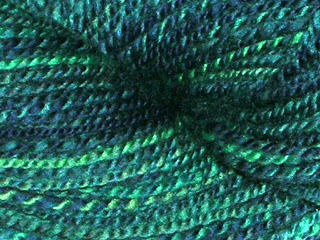I score a Weavette (Weave-It...Weavit?); CheekyRedHead makes some LOVELY sock yarn for you (if you donate in the month of September);

This episode: Isolde floats (like small rocks or bits of wood) or doesn't burn like...not-a-witch..., Tristan finds a Fairy Dog, and then finds another Isolde!
The drama!
Next week is the end of ol' T&I...then on to The Romantics and Frankenstein!
Note:
I heard that the audio is off on the last two. Anyone who can send specifics, please do, so. I'm trying to figure this one out...
Note Note:
Got it. It's going to take me a bit, but rest assured, I'll be uploading fixed episodes while at SOAR.
Friday, September 28, 2007
Episode Seventy-two: Just Weave-It!
Posted by
Heather
at
1:29 PM
![]()
Labels: Tristan and Isolde
Subscribe to:
Post Comments (Atom)







Oh, no! In a classic example of hubris, I mistakenly told you, Heather, that the term 'crest-fallen' only began with the Muscovy duck, when really I meant to use it as an example (and truly, it's the best I know). That's what one gets when pushing to be first - I'm sorry, Heather and CraftLit listeners. At least it's over ducks and not, say, nuclear weapons.
ReplyDeleteSO glad to hear someone picked up the hottie/haute-y shirt ball. I often have good intentions, but oh so little time. Can I put my plug in for the "eye candy for your ears" tag though? SO love it!
ReplyDeleteThat song is so very cool. Does the band have a website? Or can any of their songs be obtained anywhere?
ReplyDeleteThanks for another great episode.
Kate
Hi Heather,
ReplyDeleteI enjoy your podcast a lot, but I wanted to comment on the audio problem. I believe it started 2 or 3 episodes ago. It gets loud for maybe 20 seconds and then quiet again. For me the problem is, that it always switches from too loud to too quiet...
When you talk it often becomes loud, when you start a new sentence or after a brief break, but during T&I it happens mid-word. I hope this helps somewhat!
Good luck and thanks again!
First time listener and I'm hooked.
ReplyDeleteYou've got a nice, organized podcast that's intertaining, too. I'm downloading the previous episodes to see what I missed! I look forward to more!
Hi Heather, still catching up! I've enjoyed this story and read it before in many forms, I studied quite a bit of celtic folklore, archaeology, history, etc. in college. I wanted to explain some of the history about the trial by iron and all the nature/water/iron symbolism. It's important to realize that this story definitely predates Christianity, and much of the Christian symbolism was added to the story when it was first written down in the 9th century (if memory serves) in the Mabinogion.
ReplyDeleteFirst, the iron. Iron has been seen as a symbol of purity, magic, and protection against evil since pre-Christian times in the celtic countries. A common offering to the Gods was to throw a sword (usually first broken) into a body of water (the water being a door to the underworld/otherworld). It was also common to affix iron to doors or hold it in your hands to protect against evil. When Christianity arose the symbolism was morphed. If you hold a sword handle-up it also looks like a cross. Swords/knives were often held this way when oaths were sworn, etc.
This kind of goes along with the TON of nature symbolism in this story. In pre-Christian times it was common to believe that Nature would embrace/help/support good people and reject bad people. You see Tristan able to speak to birds, the forest actively shielding Tristan and Isolde with its leaves, and the passage about the scattered ashes of the traitors causing ground to be barren. This, too, was adopted during Christian times. Water, wood, etc. were seen to be pure creations of God, and if God supported you (as in witch trials) the water would support you too or the pure fire/wood would not burn you.
Religious/otherworldly experiences in Celtic spirituality often happened in/near water (or other liminal spaces), these places were seen as doorways to another world. The West in general was also seen as the doorway to the otherworld, as you pointed out with Ireland.
It's important to remember that some scholars believe that these stories were originally stories of the Sidhe/fairy folk/Gods, and that Tristan, Isolde, Mark, etc. may originally have been seen as more than human. This part of the story was likely stripped away with some of the more Pagan elements when it was written down and "modernized" for the medieval audience.
There's so much more I could say, this stuff is a pet interest of mine. Keep up the good work!
Oh, one other thing, I like your comment about the two repeating Isoldes, but you should also be aware that this sort of repetition/pairing/duplication is a very common theme in Celtic culture and folklore. :)
ReplyDelete